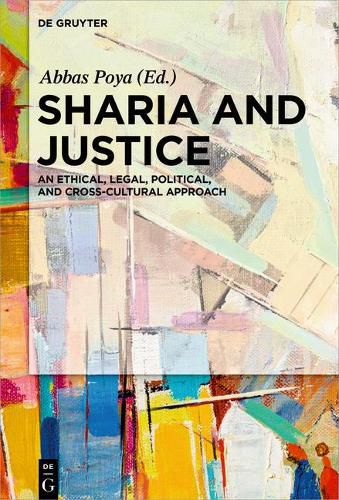Readings Newsletter
Become a Readings Member to make your shopping experience even easier.
Sign in or sign up for free!
You’re not far away from qualifying for FREE standard shipping within Australia
You’ve qualified for FREE standard shipping within Australia
The cart is loading…






Justice is considered the basic norm of human coexistence. Every legal order refers to the concept of justice, and Muslims also regard their religious norms (the Sharia) as offering just solutions to legal questions. But is the assumption that the Sharia is just merely an acceptance of a status quo correct? And is justice the necessary aim of the Sharia? In this volume, renowned scholars discuss these questions from different perspectives. In principle, the first normative source of Islam, the Qur'an, orders justice and fair conduct (Rohe). At the same time, an analysis of the concept of justice in the classical age of Islam (Ahmed and Poya) also shows that there existed ambivalent understandings of this concept. The relationship of the idea of justice in Islam to political questions (Ende), to war (Poya), and to modern reform (Mir-Hosseini) again confirms the importance of the concept for a critical reflection on traditional assumptions and existing circumstances. The discussion on the hijab in Western countries (Ladwig) shows paradigmatically how justice can regulate the relationship between the secular state and the Sharia. The essays in this volume endeavor to show that debates about justice, in Islam as well, express an underlying tension between the perception of an order as just on the one hand, and the feeling of injustice under the same order on the other. This discussion validates the idea that justice should be understood as a concept subject to a perpetual reexamination according to changing times and circumstances.
$9.00 standard shipping within Australia
FREE standard shipping within Australia for orders over $100.00
Express & International shipping calculated at checkout
Justice is considered the basic norm of human coexistence. Every legal order refers to the concept of justice, and Muslims also regard their religious norms (the Sharia) as offering just solutions to legal questions. But is the assumption that the Sharia is just merely an acceptance of a status quo correct? And is justice the necessary aim of the Sharia? In this volume, renowned scholars discuss these questions from different perspectives. In principle, the first normative source of Islam, the Qur'an, orders justice and fair conduct (Rohe). At the same time, an analysis of the concept of justice in the classical age of Islam (Ahmed and Poya) also shows that there existed ambivalent understandings of this concept. The relationship of the idea of justice in Islam to political questions (Ende), to war (Poya), and to modern reform (Mir-Hosseini) again confirms the importance of the concept for a critical reflection on traditional assumptions and existing circumstances. The discussion on the hijab in Western countries (Ladwig) shows paradigmatically how justice can regulate the relationship between the secular state and the Sharia. The essays in this volume endeavor to show that debates about justice, in Islam as well, express an underlying tension between the perception of an order as just on the one hand, and the feeling of injustice under the same order on the other. This discussion validates the idea that justice should be understood as a concept subject to a perpetual reexamination according to changing times and circumstances.